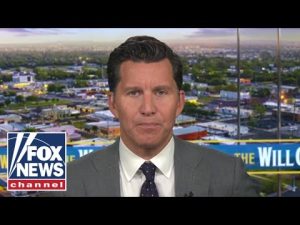When you hear a story about a parent leaving their young children in a McDonald’s for hours, it’s easy to jump to conclusions. Many people were quick to sympathize with Chris Louis, the man at the center of a recent media frenzy. It seemed like a straightforward tale of a father trying to get a job to improve his family’s life. Yet, the truth often has many layers, and this story is no exception. The assumption that this was solely about a desperate attempt to land employment was a classic case of mistaken identity.
The media, always eager for a juicy headline, painted Louis as a sympathetic figure caught in an unfortunate situation. It was claimed he left his children—aged just one, six, and ten—at a McDonald’s for two hours while attending a job interview. This narrative pulled on the heartstrings of many, prompting an outpouring of financial support via a GoFundMe campaign that raised tens of thousands of dollars. However, as the saying goes, not everything is as it seems.
Once again, the perpetually eager social media crowd ran with the narrative that Louis’s arrest was racially motivated. It’s a predictable playbook that some never hesitate to pull out. But then came the plot twist, straight out of a detective novel: evidence surfaced that no job interview had even been attended. The entire story unraveled, leaving people to wonder what really happened while Louis left his kids in that McDonald’s.
The police report from the Richmond County Sheriff’s Department revealed that the job interview story was a fabrication. The media’s portrayal of Louis as a parent battling the odds to provide for his kids was false. Instead, the reality of what Louis was doing remains unclear. Speculations abound, with some guessing it might be related to illicit activities. It’s a reminder of why it’s risky to jump to conclusions based on a single narrative, especially when the real details have not been fully vetted.
This situation underscores the importance of fact-checking and the dangers of media sensationalism. The rush to push an agenda often eclipses the duty of truth-telling. It also highlights the need for personal accountability and judgment. Leaving three young children alone in a public place, regardless of the motive, is a reckless decision. Instead of excusing such behavior, it serves as an example of what traditional values caution against—a reminder that the well-being of children should never be compromised, especially in the name of a false narrative.







